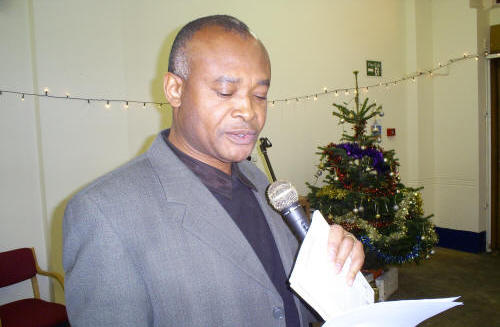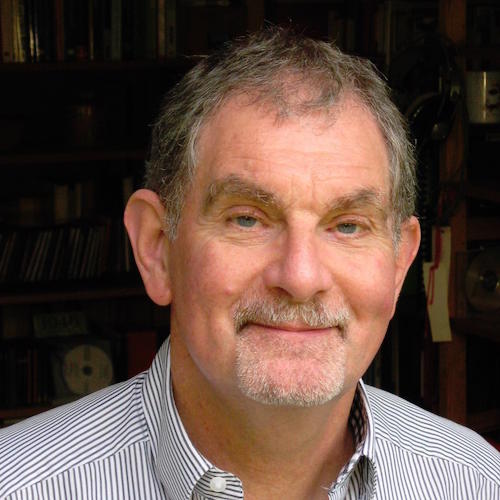The blue teacup does not want to be silent about where it came from. You know how things are. Do not give up on curiosity. Put your hands in for a new fable; for new hair. Musing about the work force is the premise behind the trapeze. Ahead of suasions, bitterness proves to be cubical. Ways into poetry’s erectures. These creditors showing interest in my assets. Got tickets to see cars fly while the morning eats bread out of my hand. I ask a bald man: do you miss your hair? Some kinds of poems come to you at a certain moment in your life to move you in a particular direction or to the next level.
To see life only in literary and symbolic terms would be a cop out. Will the old house shelter us properly? No shortcuts to rhyme. I see you moving around the attic: a walking puzzle. Tea is conducive to vision and today’s spur is a strong one. The lightest touch stirs the flower, the tree, the water. I try to understand the ways of a flock of birds. Ingénue, pinnacled, tentacled. Stare down the arrogant demands and claims of newspapers, blogs, magazines, television, tweets. Questions wrack a temperate zone. There are arcades to traverse. The poet is on a gambol.
Addressing the Houses of Parliament in Cape Town on 24th May, 1994, Nelson Mandela read Ingrid Jonker’s poem titled “The Child is Not Dead.” We depend on the universe; the universe does not depend on us.
At that Hyde Park concert on 5th July, 1969, Mick Jagger read some parts of Shelley’s “Adonais.” It was the hour of a floating lace and afterwards butterflies bumped into each other on their way to the clouds.
If by chance you’re near, come show me the way to slow jams. The past is in front of me. I can’t go further unless you let me. “Operation Unicord” ensued at 5a.m, on 6th July, 1967.
***
Perhaps the Writers Collective of Kristiania came into being to explode a unitary normativeness. The members know that a refracted sensorium is not enough to ensure progress in the arts and society. Whether in the grip of brown or pink vitriol, they are aware that a decentralized perspective serves the purposes of a poem better. This group of writers do not seem to particularly care for a symbiosis that is only suspended in time. The point being that ideological disputes and artistic contradictions are encouraged in their monthly literary salon. These genial disagreements deeply connect the members because they are passionate about exploring new ways of writing and new ways of being in the world. D.W Gibson and Joshua Furst are the founders of this literary collective that I was invited to join three years ago. Among us readings, discussions, retreats (so far mainly to the Catskill Mountains) work in tandem. Other members include Mae Saslaw, James Hannaham, Ben Clague, Sarah Bibel, Jeremy Tiang, Cordula Maria Rien Kuntari, Eva Fortes, Todd Lester, Lee Bob Black, Mike Heppner, Lonely Christopher, Danielle Jackson, Matthew Aaron Goodman, Margie Cook, Stephanie Leone, Hanan Elstein, Christine Yueh Chin Chia, Fiona Gardner, Lydia Blaisdell, Maria Jesus Zevallos, Gordon Haber, Stephanie Russell-Kraft, Angela Hanks, etc. I treasure their literary companionship.
***

Some poems have a knowledge that the poet doesn’t have. I have respect for posters, sculptures, architecture, rococo conversations. A psychology accessible by elevator. I love digging up histories of figuration and disfiguration; dappled mustards etc. I gleam with dusk. And I have been deeply touched and moved by these lines from a poem titled “Out Tight Drew a Woman Her Long Black Hair” in Tova Gannana's book Human Dust:
black branches.
In our empty rooms
Dry bones can harm no one.
Rock over water
Rock among a pool,
A spring and water
And also water.
And no rock if there were rock.
We didn’t know how to say survivors.
Say human dust.
Say rock
As if there were no rock.
Vagaries and auguries converge in this poem. Mind and world in motion. A poem that has planted a seed. Tova Gannana is both an empiricist and metaphysician.
***

Peeking through smoke rings and lenses, some poets find their creations indefinable but still try to familiarize them. Even in this effort, they are not wheeler-dealers. They don’t wait until fountains spin on high. So it’s crazy if nerve is the only thing that gets talked about regarding the poems of these poets. A poem standing sentry over you. You and the poem: where does one end and the other begin? In the poem “Fog” from Afam Akeh’s book Letter Home & Biafran Nights, a suggestion seems to be in the offing:
You watch the day unveil,
Through the gloom advance its course.Weather is savage truth, density primal light.
Piercing the fog, a digital voice,
Your lesson on form and word placement.You know the drill, can travel tip toe,
In silences and low coughs: poetrynot as a shout but as pines in wind,
as autumn leaves fading, falling lightly,scorning statement, not hanging
dirty laundry and bloody entrails:poetry not pity. You know the drill.
***

Inexorable tourniquets idling into a Hanseatic city named Bremen (where I used to live) where Belfast-born poet and my friend Ian Watson still lives. It was with great joy and gratitude that I received his book Riverbank City, which he sent to me from Germany the other day. The book brought the city that we both once lived in together into my New York haunts. I went everywhere with it. The poems charted my moods—nostalgic, melancholic, humorous, restless. I remembered how Ian patiently introduced me to the streets and classrooms and literary scenes of Bremen. I recalled our walks beside the Weser River; our conversations about Nigeria and Ireland; Seamus Heaney and Wole Soyinka. Memories of our various readings at Café Ambiente, Villa Ichon, Uni Gast Haus, Uni Bremen, swirled around me. Through my mind’s eyes I saw coveners sucking wisdom through straws. All crescents are theirs; all fruits of dance get to them. Watson has a jubilant attitude towards his poetry. For him a poem is exuberantly a combination of lonesomeness and community; solitude and companionship. His rambunctious nature enlivens his poems. The monument that holds up his poems is compassion. Purposeful glimpses:
My neighbor greets me
With a different nod today;
he’s turned that page
on his kitchen calendar.Magnolia whisper on the Osterdeich,
greying forsythia, pale lemon day,
cherry pink and apple-blossom cream.Smooth sirocco from the Neustadt side;
daisy blaze on dyke slope; dandelion fire;
banner whisper over Sielwall ferry point.
For some it is a longer lie in bed day;
For some it is a red letter day.
The man on the riverside balcony
looks out from Bremen in its heyday.
My apple polished to perfection,
I wait to start our yearly stroll.(See “May Day”)
***
There seems to be an upheaval now. Contemporary American poetry doesn’t seem to be docile as usual regarding issues of racism, rape, gun violence, inequality, literary erasures, gender imbalance, blatant cronyism, white supremacy. Frank discussions are taking place in various poetry communities. Many poems and essays are referencing the tensions, anxieties and rages of this society and beyond. In this harrowing period lots of poets have seen and felt the importance of working to destroy the status quo. Perhaps we can all commit to surviving with dignity.
Uche Nduka was born in Nigeria to a Christian family. Raised bilingual in Igbo and English, he earned...
Read Full Biography

